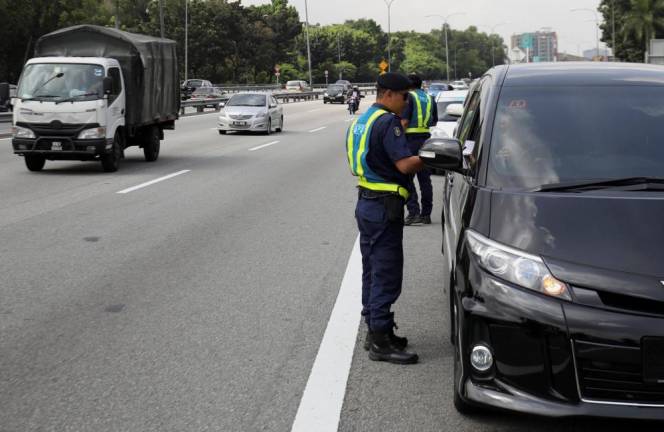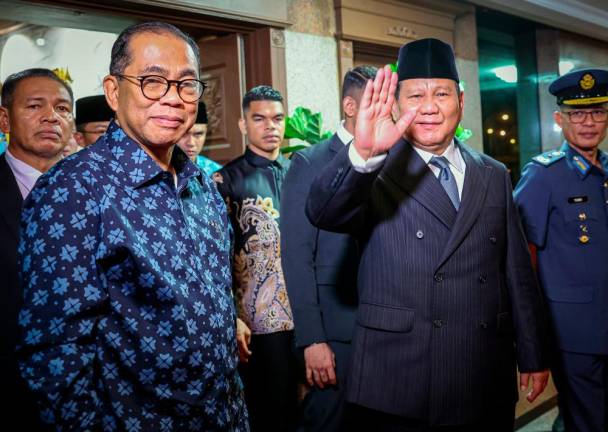MAY has two events that are inextricably linked. On May 9, 2018, in a watershed event in the nation’s political history, voters rejected Barisan Nasional in favour of Pakatan Harapan to run the country for the next five years.
A common view is how unexpected the outcome of the 14th general election was.
Since the nation’s first election in 1955, the Alliance and BN had gradually tightened their power and hold on the country as to be unbeatable. This was done through a combination of constitutional and extra-constitutional measures, deployment of an enormous patronage machine, and the cooptation of the nation’s civil service in suppressing the opposition.
The ruling coalition also effectively exploited racial and religious faultlines – adroitly on some occasions, clumsily on most – to successfully maintain its hold on the Malay majority voting population.
Key to the Alliance and BN hold on power was what happened 50 years ago on May 13. On that darkest day in Malaysian history, violence broke out in Kuala Lumpur and spread to some other parts of the country. The human and material casualty was a small part of its cost to the nation.
Also lost was the country’s sense of harmony and innocence; and the damage to racial relationships and social cohesion.
The riots not only scarred our national psyche. It was repeatedly taken advantage of by Alliance and BN government and politicians to instil fear into the voting public.
These threats drawing on May 13 continue today in the social and some print media, and are the staple output of some cybertroopers out to destabilise the government.
According to Zainon Ahmad in his article in The Sun (July 26, 2007), The Tragedy of May 13, 1969:
While it is a dark blot in the nation’s history, Malaysians – old and young – will never be allowed to forget May 13. Mostly, it is used to scare people away from public discussions and debate on such subjects as citizenship, education, culture and religion.
We are constantly reminded of the incident so that we will refrain from questioning the regime in place, from saying things about it or doing things that may be construed as undermining racial harmony and national unity.
As recently as 2010, there was a planned “Melayu Bangkit” rally to “commemorate” that fateful date exploited by Umno and other Malay parties.
The keynote speaker was to be Tun Dr Mahathir Mohamad who said “I wanted to go to the function not to raise racial issues. My aim was to say to all these people why it is important not to forget the past”.
People, he said, should understand history in order not to repeat the mistakes of the past.
The proposed rally did not take place with reports attributing the cancellation to the then prime minister, Datuk Seri Najib Razak.
But several years later Najib opened the Umno general assembly in November 2014 by screening slides of the May 13 riots and communist attacks in Malaya, in a reminder to Umno members of the dangers of discord among the Malays.
Explicitly linking the events of May 13 to the Malay (and his own under threat) position then, he noted:
“Everything that we see today didn’t come easily on their own. Actually, the ups and downs of Malaysia’s journey were full of episodes and events,” Najib said in his policy speech.
His not so subtle message appeared to indicate that May 13 was the starting point of Umno and Malay dominance.
In the same meeting, Youth chief Khairy Jamaluddin urged Malays to rise and defend themselves from the onslaught of insults and challenges to their special position, declaring that the country’s predominant ethnic group had been patient enough.
Earlier, Umno deputy president Tan Sri Muhyiddin Yassin reportedly warned that Malaysia could see another May 13 incident if no efforts were made to preserve inter-ethnic harmony, especially when Malays and Muslims continue to be insulted.
Muhyiddin later clarified that he was not making any threats but reminding about the state of the country’s race relations.
On May 14, the home affairs minister in the new government, responding to a call to declassify documents on May 13, emphasised that Pakatan had promised to be fair and to handle any issues by taking into consideration the interests of the people for the sake of peace and harmony.
“There is no use digging up old stories. An important lesson (is) what we are doing now and in the future,” he said.
Perhaps the past and truth does not matter in Malaysia and what happened on May 13 will remain forever locked in the politically and racially skewed expurgated report of the National Operations Council with its many unsupported assertions and unanswered questions.
That is a pity.
Besides the instigators and perpetrators of violence, there were examples of responses which rose above racial sentiments; of compassion, courage and concern for the victims by neighbours and members of the police, army, nurses and doctors that serve as a testimony to the peaceful character of our rakyat.
The latter and their actions of humanitarianism transcending race should be recognised in the hope that such unifying forces will emerge more strongly.
Lim Teck Ghee’s “Another Take” is aimed at demystifying status quo orthodoxy. Comments: letters@thesundaily.com










